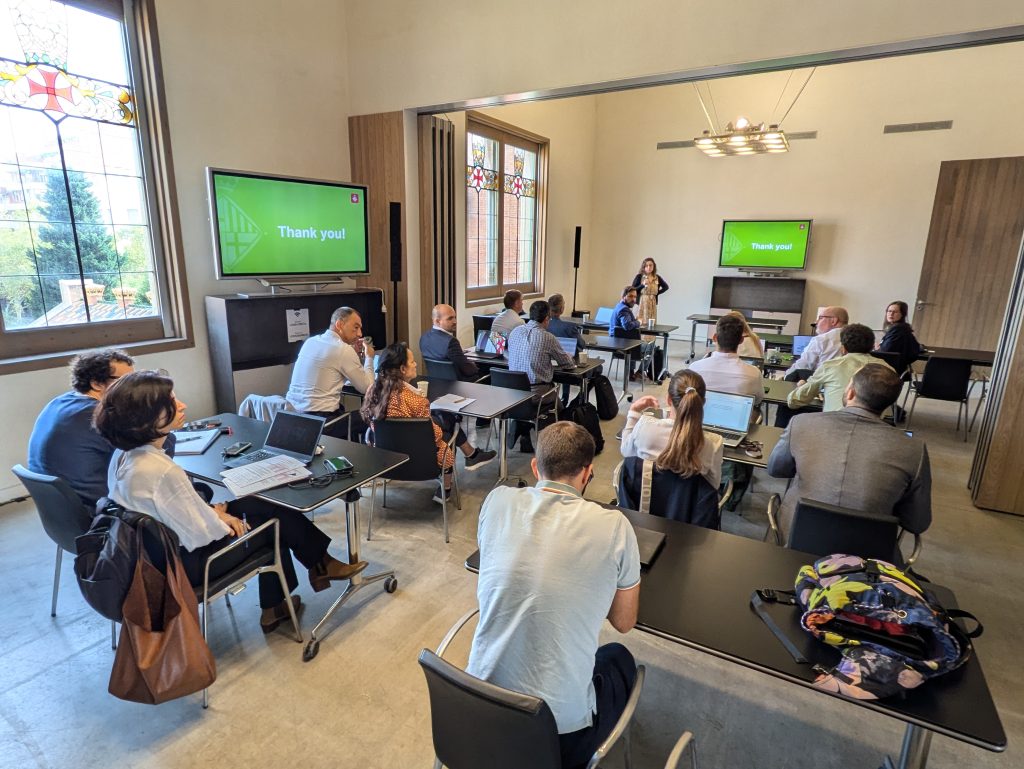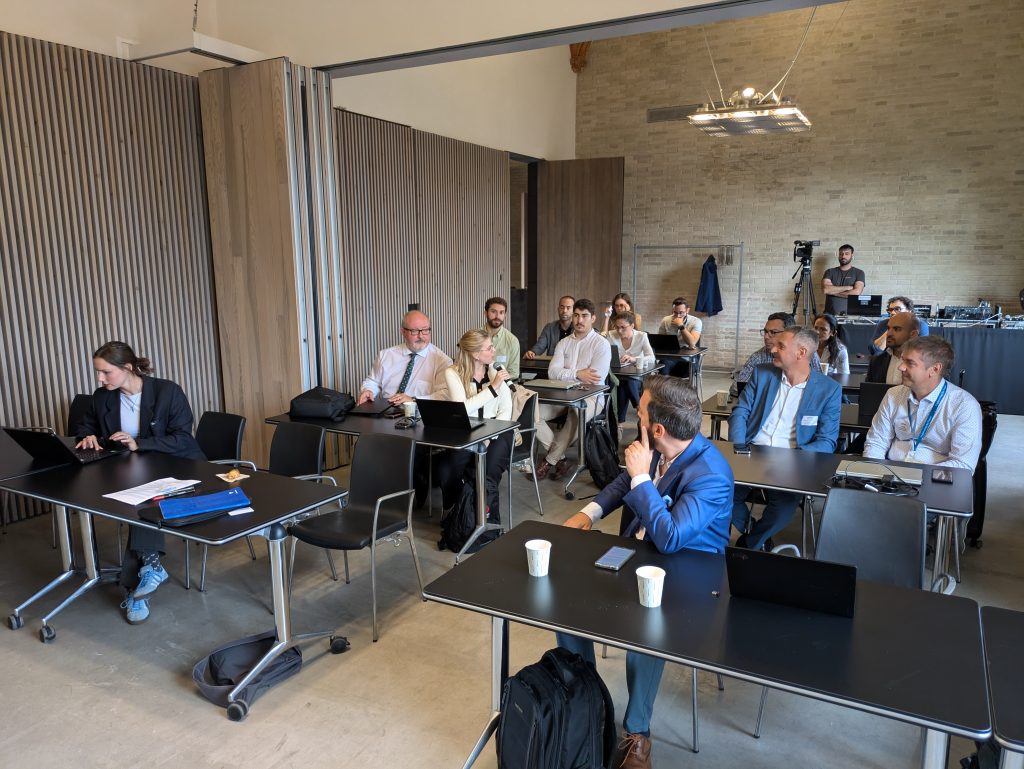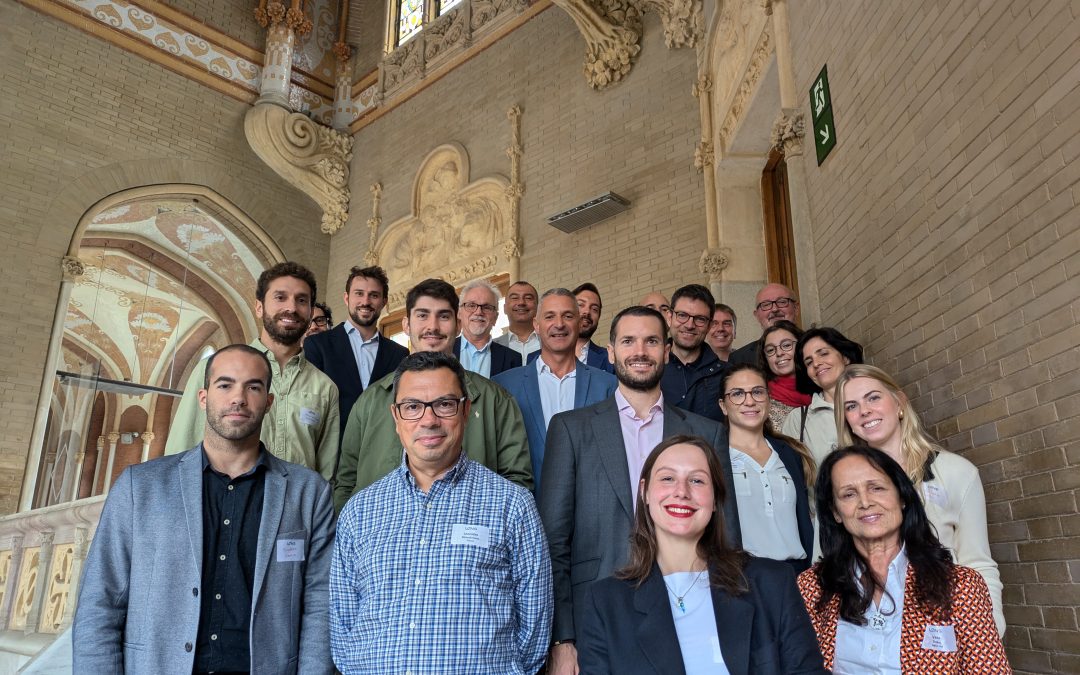The recent LENS City and Stakeholder Event in Barcelona on 15 October brought together city representatives, researchers and industry stakeholders to address the pressing issue of pollution caused by light vehicles (LVs) and explore solutions developed by the EU-funded projects of LENS and CRETA. The event served as a forum for sharing insights and strategies to promote sustainable urban mobility. LENS invites you watch the video of our measurement campaign and access all presentations on the bottom of this news item.
EMISIA, as the LENS project coordinator, and OPUS, as the representative of CRETA, opened the event with welcome words and expressed their appreciation for Barcelona’s cooperation. The introduction highlighted the growing importance of using remote sensing to monitor real-world emissions beyond the limits of type approval testing.
Maria Savall Mañó presented Barcelona’s ambitious strategy to achieve climate neutrality by 2030, focusing on reducing emissions from the city’s transport sector, which currently accounts for 27% of its CO2 emissions. The approach includes decarbonising its municipal fleet, increasing the use of zero-emission vehicles in public transport, and improving urban freight distribution with micro-hubs and bicycle logistics. The Low Emission Zone (LEZ) policies have resulted in 25% of vehicles on the road being clean or zero-emission, with plans to reach 50% by 2030. The city is also rapidly expanding its charging infrastructure and introducing battery-swapping stations for electric motorcycles.
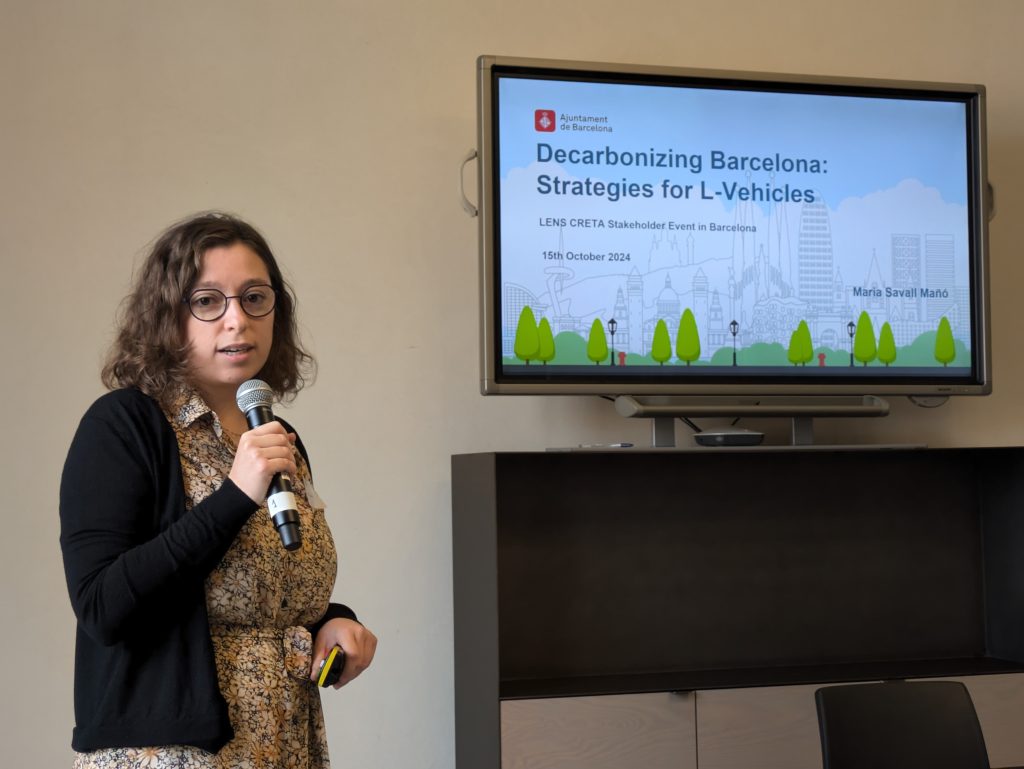
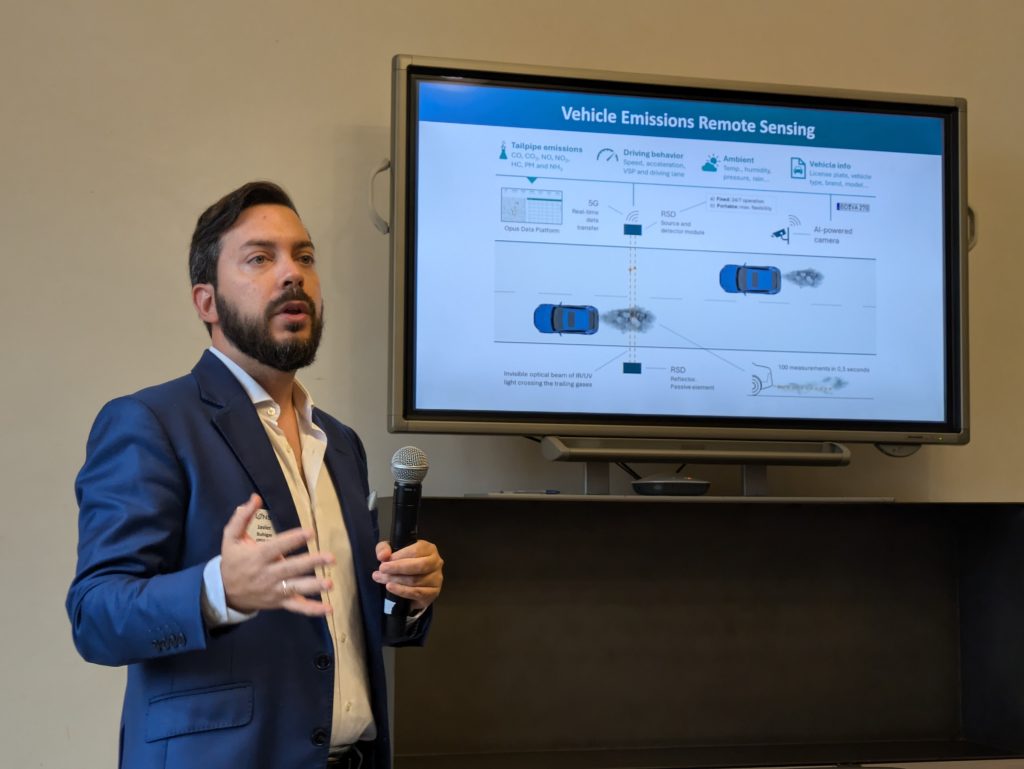
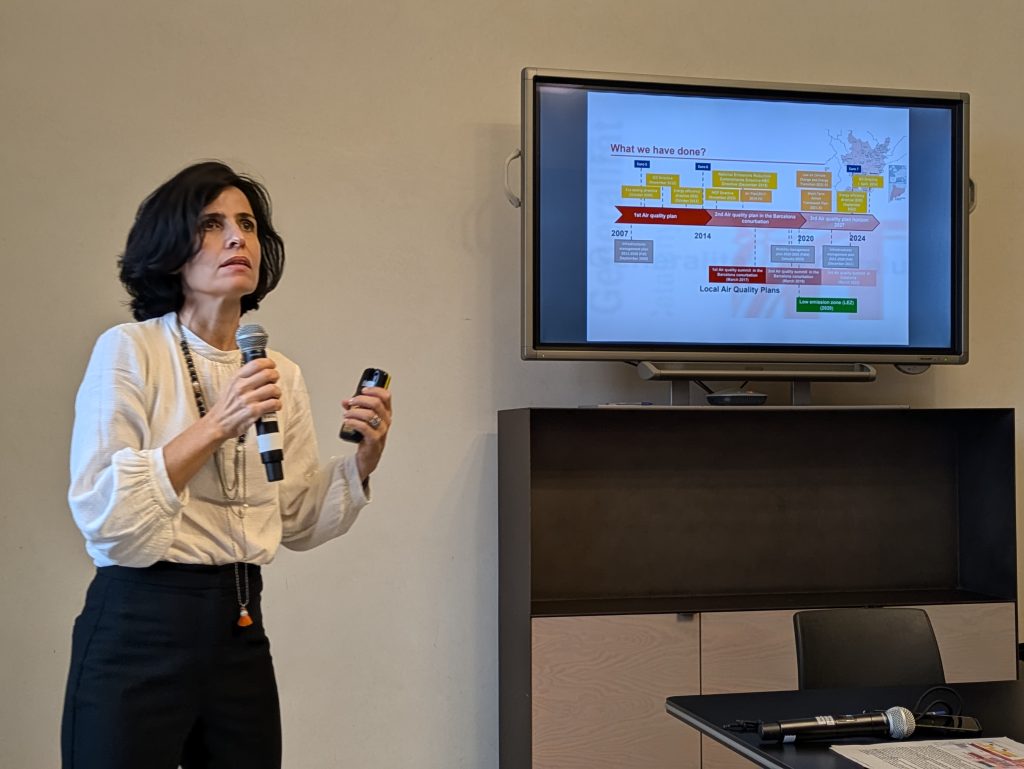
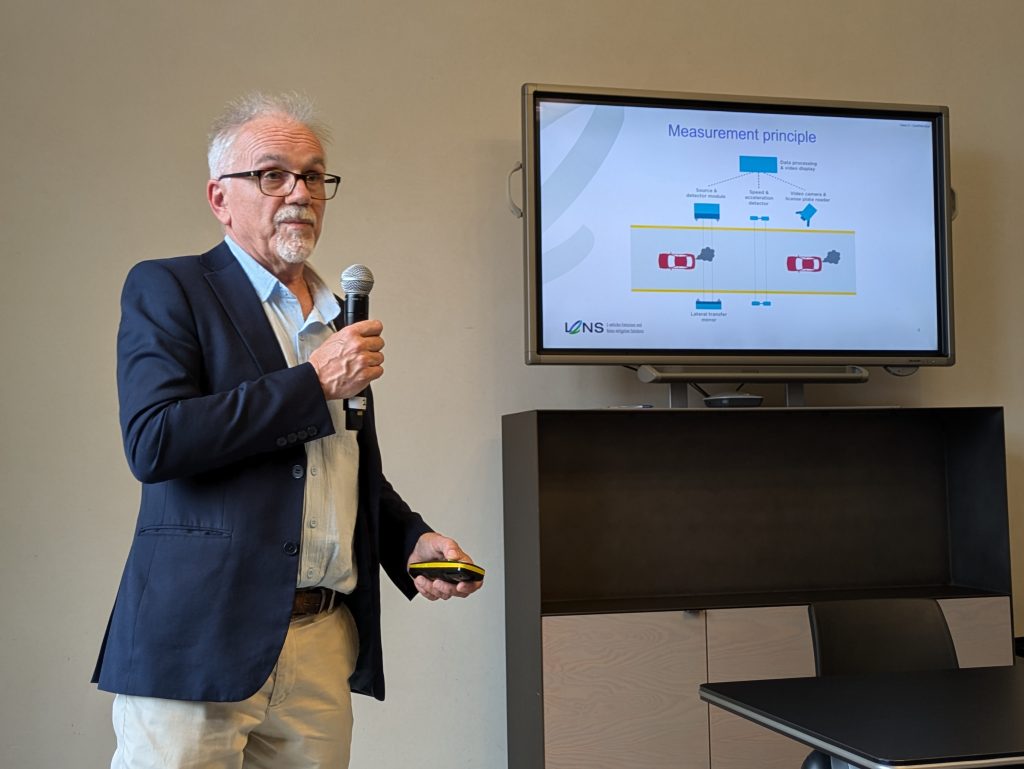
The CRETA project, which uses remote sensing technology to monitor vehicle emissions in real-time, was also discussed. This technology offers cities a dynamic approach to traffic management, allowing road pricing to be adjusted based on actual emissions and identifying high-emitting vehicles for targeted action. Barcelona and Madrid are already testing this technology, which provides continuous and flexible monitoring through both portable and fixed installations.
Participants were also informed about the roadside measurement campaign of the LENS project, which included noise- and air pollution tests of passing L-vehicles over the period of one week. These tests, which were partially interrupted by short autumnal rain showers, resulted in several hundred tested vehicles. LENS partner IVL shared the Barcelona tests by highlighting the significant opportunities of the campaign due high L-vehicle use in the Catalan capital.
Presentations and exchanges in the afternoon also included an overview of the Catalonian air quality strategy, which was presented by Eva Perez Gabucio, who pointed out that efforts can be traced to the first regional air quality plan of 2007. As highlighted by previous speakers, the introduction of the LEZ helped significantly to reduce air pollution in the region. The latest holistic action plan for entire region of Catalonia includes 374 individual actions to curb pollution in various sectors, including industrial energy and even agriculture.
The event concluded with discussions on the future of L-vehicle management. Topics included the cost of emission monitoring equipment, the need for stricter noise regulations and the challenges of managing the growing number of LVs in urban areas. The LENS project was recognised as an important initiative in gathering real-world data to support evidence-based policy decisions on LV emissions and noise. By developing robust monitoring methods, the project will help cities address the environmental challenges posed by LVs in a more strategic and data-driven manner.
